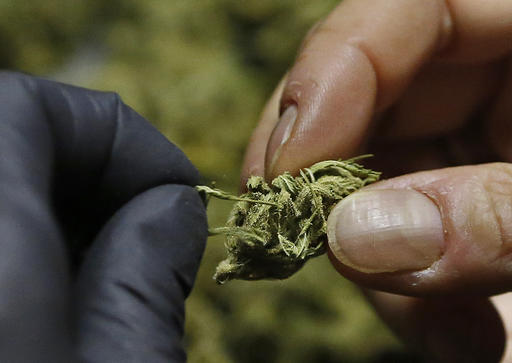By Baylor Lariat

California, the first state to approve medical marijuana two decades ago, was among five states weighing whether to permit pot for adults for recreational purposes. The other states were Arizona, Maine, Massachusetts and Nevada.
Florida, one of three states deciding whether to permit marijuana for medical purposes, approved the idea. Montana voted on whether to ease restrictions on an existing medical marijuana law.
If California votes “yes,” recreational cannabis would be legal along the entire West Coast, giving the legalization movement powerful momentum. That could spark similar efforts in other states and put pressure on federal authorities to ease longstanding rules that classify marijuana as a dangerously addictive drug with no medical benefits.
In general, the proposals for recreational pot would treat cannabis similar to alcohol. Consumption would be limited to people 21 or older and forbidden in most public spaces. Pot would be highly regulated and heavily taxed, and some states would let people grow their own.
State-by-state polls showed most of the measures with a good chance of prevailing. But staunch opponents that included law enforcement groups and anti-drug crusaders urged the public to reject any changes. They complained that legalization would endanger children and open the door to creation of another huge industry that, like big tobacco, would be devoted to selling Americans an unhealthy drug.
The Massachusetts measure, for example, was opposed by Republican Gov. Charlie Baker, Boston Mayor Marty Walsh and the Roman Catholic Archdiocese of Boston, which contributed $850,000 to the “no” campaign.
In Maine, opponents included some major players in the medical marijuana industry who worried about disruptions to their business model. In Arizona, the issue evoked uncertainty about how legalization might affect the flow of smuggled illegal drugs across the border with Mexico.
The latest polling showed 55 percent of likely voters supporting California’s 62-page proposal. Still, it sowed deep division among marijuana advocates and farmers. In Northern California’s famous Emerald Triangle, a region known for cultivating pot for decades, many small growers have longed for legitimacy but also fear being forced out of business by large corporate farms.
If “yes” votes prevail across the country, about 75 million people accounting for more than 23 percent of the U.S. population would live in states where recreational pot is legal. The jurisdictions where that’s already the case — Alaska, Colorado, Oregon, Washington state and the District of Columbia — have about 18 million residents, or 5.6 percent of the population. Twenty-five states allow medical marijuana.
According to national polls, a solid majority of Americans support legalization. Gallup’s latest survey gauged support at 60 percent, up from 14 percent from when the question was first posed in 1969. Gallup says 13 percent of U.S. adults currently report using marijuana, nearly double the percentage who reported using pot in 2013.
California voters rejected a similar initiative in 2010 after campaign leaders struggled to raise money and support for the lengthy ballot question that was hastily written by the owner of a small medicinal marijuana store.
Proposition 64 would allow people 21 and older to legally possess up to an ounce of weed and grow six marijuana plants at home. Varying tax rates would be levied on sales, with the money deposited into the state’s Marijuana Tax Fund.
Most of the money would be spent on substance-abuse education and treatment. Some would go to repair environment damage inflicted by illegal marijuana growers and to train police to detect when people are driving under the influence of pot.

No comments:
Post a Comment